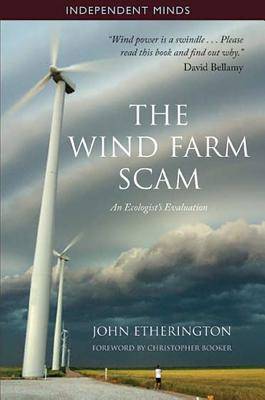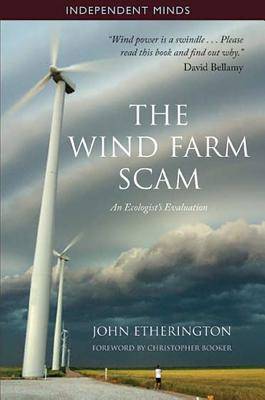
- Retrait gratuit dans votre magasin Club
- 7.000.000 titres dans notre catalogue
- Payer en toute sécurité
- Toujours un magasin près de chez vous
- Retrait gratuit dans votre magasin Club
- 7.000.0000 titres dans notre catalogue
- Payer en toute sécurité
- Toujours un magasin près de chez vous
Description
The specter of global warming and the political panic surrounding it has triggered a goldrush for renewable energy sources without an open discussion of the merits and drawbacks of each. In The Wind Farm Scam Dr Etherington argues that in the case of wind power the latter far outweigh the former. Wind turbines cannot generate enough energy to reduce global CO2 levels to a meaningful degree; what s more wind power is by nature intermittent and cannot generate a steady output, necessitating back-up coal and gas power plants that significantly negate the saving of greenhouse gas emissions. In addition to the inefficacy of wind power there are ecological drawbacks, including damage to habitats, wildlife and the far-from-insignificant aesthetic drawback of the assault upon natural beauty and the pristine landscape, which wind turbines entail. Dr Etherington argues that wind power has been, and is being, excessively financed at the cost of consumers who have not been consulted, nor informed that this effective subsidy is being paid from their bills to support an industry that cannot be cost efficient or, ultimately, favor the cause it purports to support.
Spécifications
Parties prenantes
- Auteur(s) :
- Editeur:
Contenu
- Nombre de pages :
- 300
- Langue:
- Anglais
- Collection :
Caractéristiques
- EAN:
- 9781905299836
- Date de parution :
- 01-09-09
- Format:
- Livre broché
- Format numérique:
- Trade paperback (VS)
- Dimensions :
- 130 mm x 196 mm
- Poids :
- 249 g

Les avis
Nous publions uniquement les avis qui respectent les conditions requises. Consultez nos conditions pour les avis.






